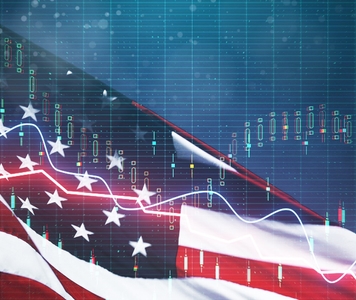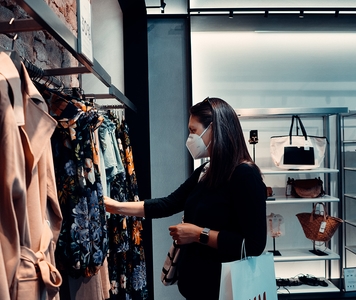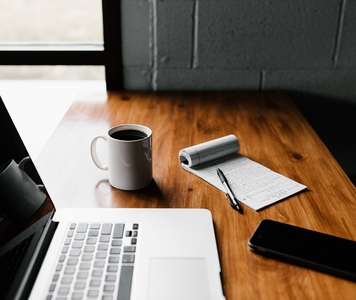No one can say with confidence how long this pandemic will last or what the long-term effects on the public psyche will be. What is pretty clear is that we've already crossed the line in-terms of being able to forecast a global recession.
The experts are in pretty strong consensus on this point - a recession is in the making. While yes, it is true that economists are generally pretty bad at predicting recessions, it doesn't take a Masters in Economics to see that when airlines, restaurants, movie theatres, and stores start closing, it is going to have a major effect on consumer spending - the largest component of economic activity. This point is hard to disagree with.
What is somewhat less clear is the path that economic activity will take when we begin to recover from the pandemic. This is where timing plays a more important role.
Generally, recessions that follow natural disasters are shorter than recessions that follow a financial crisis. This means that if we are able to recover quickly, the damage could be lessened. However, if the depressed spending lasts too long, then the results logically will lead to job losses and supply chain issues that will create broader-based structural weakness to the economy that would lead to a recession that lasts much longer and is much deeper.
This again leads us to question if we will be successful in flattening the curve and lessening the long-term effects.
Unfortunately, the data to-date isn't looking great on that front, and while multiple vaccine trials either have started or are about to start, the realistic timeline for approvals (which could take up to 12 months), production and mass distribution won't be fast enough to save jobs and therefore avoid a deeper and longer recession.
So let's assume COVID-19 is a while away from being stopped and that as a result, a protracted recession is likely to occur.
What's next?
The good news is that the pandemic will eventually be controlled/end and that the economy will eventually recover.
COVID-19 is a terrible pandemic, but it doesn't actually pose an existential threat to humanity, even the Spanish Flu pandemic eventually came to an end and was followed by the Roaring Twenties. While this seems like an obvious insight, it is at least something that is completely predictable.
Good strategy involves assigning probabilities to potential outcomes and then planning for those outcomes. In these very uncertain times, where we don't know when things will happen or how long they will take, we only really have a single 100% probability outcome, that things WILL eventually recover.
Now we get into extrapolations based on the things we know (things will recover) and the things we assign higher probabilities to (a protracted recession).
Predictions for business
If we also take into account the peculiarities of the business environment just prior to this pandemic, we can make some very logical predictions about how the business environment will look when things recover:
Companies that have been operating on 'burn rates' instead of earnings are in big trouble. As a result, Private Equity and Venture Capital firms will experience lower returns on their investments and when the economy recovers, will be less likely to invest in firms with questionable profitability horizons.
Amazon, Uber Eats, Netflix and other firms that already serviced the anti-socials among us will perform just fine through this recession.
Retail workers will be hit hardest. Already among the lowest paid in our society, this group is particularly susceptible to both the virus and the recession. This is going to create an even larger strain on social services.
Incredibly low interest rates and a marked slowdown/stoppage of new housing builds will lead to even more inflation for resale homes once the recovery begins.
Those companies that are able to weather the recession and invest intelligently during the recession will enjoy above average returns when the recovery occurs.
I'm sure that many other extrapolations can be made, but it is the first and last points above that I think are most interesting from a planning perspective.
Firstly, companies that have been practicing "counterfeit capitalism" are in big trouble.
The capital markets won't be able to sustain many of these companies through a recession and others will be forced to increase pricing in order to stay afloat until markets recover.
For the average person that means Uber rides and Uber Eats deliveries are going to become more expensive and will likely stay that way even after a recovery. It also means that smaller companies that modelled themselves after companies like Uber and WeWork are probably going to go bankrupt. If they haven't already made billions in an IPO, they are likely to find capital markets drying-up before the recession ends.
This is actually a big opportunity for those companies with strong balance sheets, but less than 10X growth. These more stable but often less fashionable firms should be looking at prudent ways to gain competitive advantage through this period. They will no longer suffer from predatory pricing practices of their faster growing competitors.
They will also be able to compete for talent that was previously unavailable to them and finally, with these two barriers to competitiveness alleviated they should be able to shore-up their technological gaps.
This leads to the last of the 5 points I highlighted. Those firms that have the means to survive the recession should be looking at ways to intelligently invest during this cycle. This means looking at the environment that is about to materialize and allocating capital intelligently into the areas that will soon open-up to them in new ways.
Some key questions companies should be answering
Do they adequately understand all of the consumer drivers that led to their smaller faster-growing competitors gaining market share before the recession?
Have they identified strategic acquisition targets for when the private equity companies are no longer pushing valuations too high?
Are they identifying which of their products are most pandemic and recession proof? Do they understand why and if that will change?
Are they identifying the price elasticity for products that are most likely to be impacted by competitive price changes?
There are doubtless many other strategies that stable companies can pursue in order to prepare for the recovery. The key take-away to consider is that all change and upheaval provides opportunities for those prepared to seize them.
COVID-19 will be a huge challenge for all of us and the companies we work for. Many of us are still planning for how to get through the next week, let alone the next year.
However, the companies that plan even further ahead will not only survive the recession, but also thrive in the recovery that follows.
If you need help answering these and other questions, drop us a line at info@diginsights.com and challenge us.



